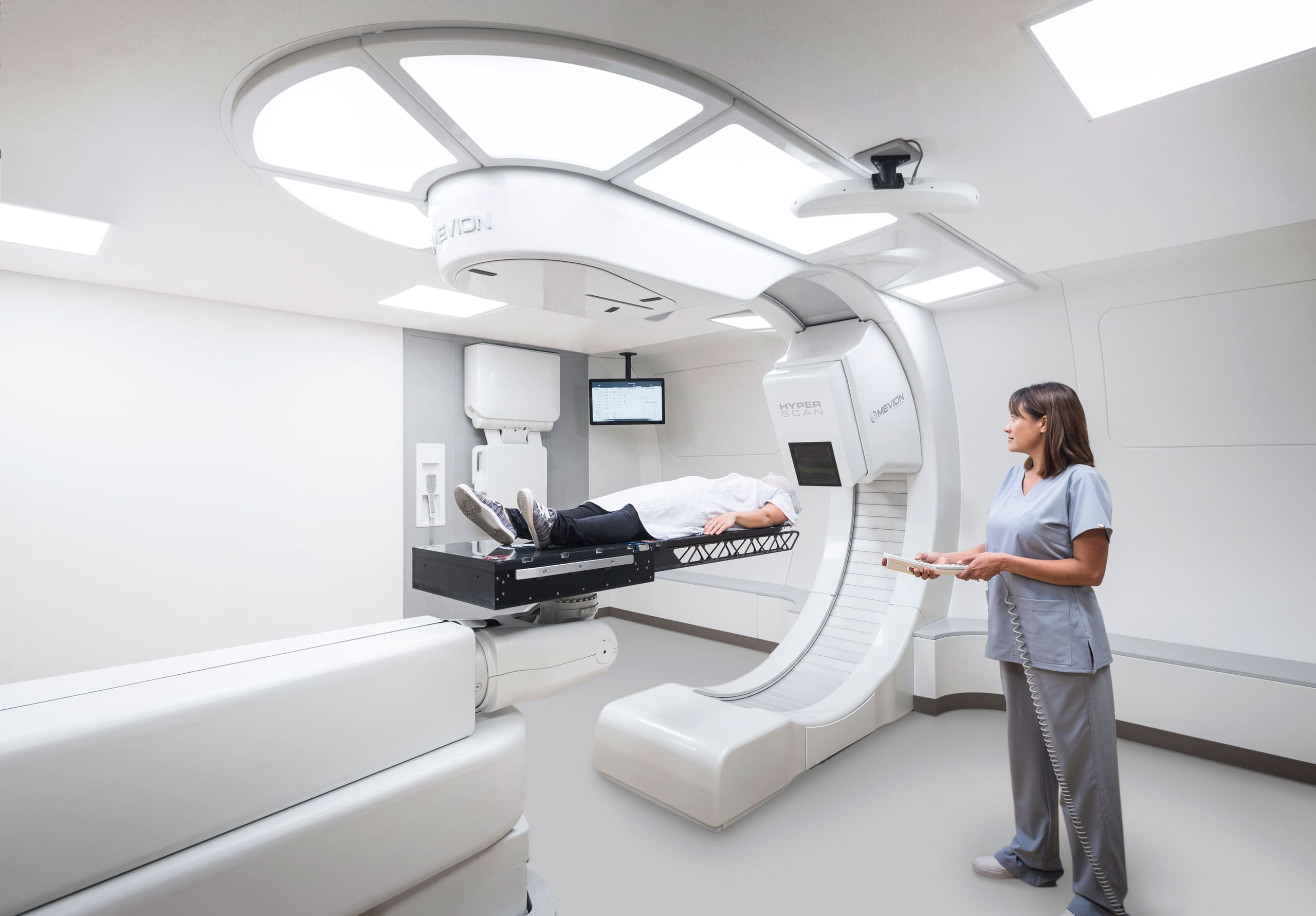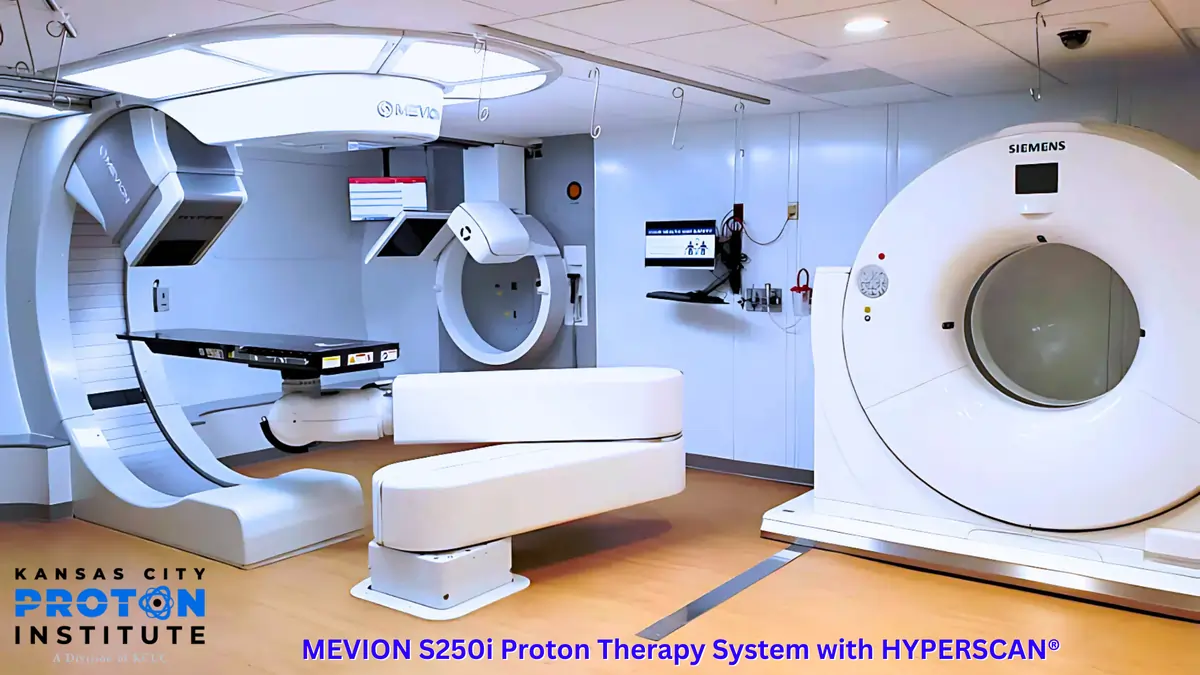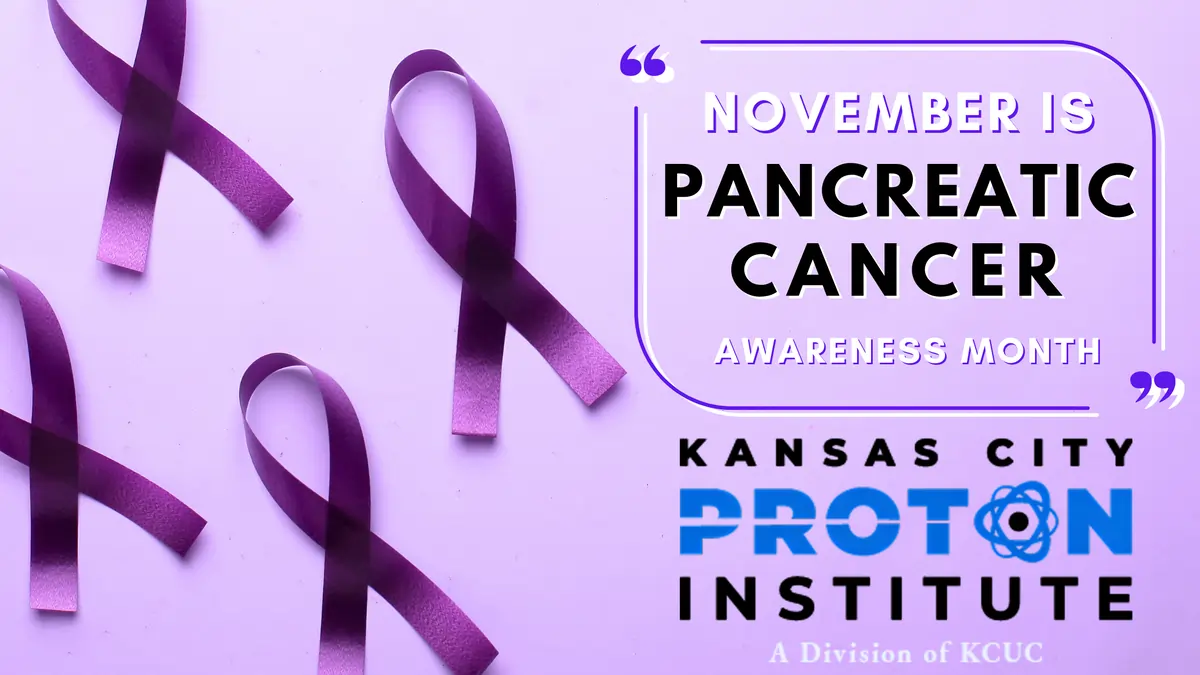
Advantages of Proton Therapy for Cancer Treatment
At Kansas City Proton Institute, we are the only office-based proton therapy provider in the Midwest. We are proud to be able to offer our cancer patients this latest form of radiation treatment because it offers several advantages over traditional radiation therapy treatments. Exactly what is proton therapy and what makes it a better choice for cancer patients? We’ll break it all down and tell you about all of the advantages of proton therapy for cancer treatment.
What Is Proton Therapy?
Proton therapy is a form of radiation treatment that utilizes protons, which are positively charged particles, to target and destroy cancer cells. Unlike conventional radiation therapy that employs X-rays, proton therapy allows for precise and controlled delivery of radiation, minimizing damage to surrounding healthy tissues. This precision is particularly advantageous in treating cancers that are close to sensitive normal tissues. The prostate, for example, abuts the bladder and rectum, and left-sided breast cancers are often in close proximity to the critical blood vessels that support the heart.
Precision and Targeted Treatment
One of the primary advantages of proton therapy is its capacity to precisely target the cancerous cells while sparing healthy normal tissues. Protons have a unique characteristic called the Bragg Peak, which allows for the majority of the radiation dose to be delivered directly to the tumor site with minimal penetration beyond it. This precision minimizes the risk of damaging nearby healthy tissues and vital organs, reducing the likelihood of side effects commonly associated with traditional radiation therapy.
Reduced Side Effects
The reduced impact on surrounding tissues is a crucial factor in lessening side effects associated with radiation therapy. Traditional radiation therapy, while effective, can lead to collateral damage to the adjacent organs and other critical normal tissues. Proton therapy’s focused approach significantly lowers the incidence of these side effects, thus enhancing the patient’s overall quality of life during and after treatment.
Improved Quality of Life
Preserving a patient’s quality of life is a paramount consideration in cancer treatment. Proton therapy’s ability to spare healthy tissues results in fewer short-term and long-term side effects. A variety of clinical trials have demonstrated that many patients undergoing proton therapy report better quality of life during and after treatment compared to those undergoing traditional radiation therapy. This advantage is particularly noteworthy in cases where the cancer is localized, and the goal is to achieve both effective treatment and minimal impact on daily life.
Enhanced Safety for Sensitive Patients
Certain individuals, such as older patients or those with pre-existing health conditions, may be more sensitive to the side effects of radiation therapy. Proton therapy’s precision and reduced impact on healthy tissues make it a safer option for these patients, allowing them to undergo treatment with a lower risk of complications. This can be especially relevant in cases where surgery or traditional radiation therapy may pose higher risks to the patient’s overall health.
Customization for Individual Cases
Proton therapy can be tailored to suit the specific characteristics of an individual’s cancer. The treatment team can customize the proton beam’s intensity and energy, optimizing the therapeutic effect for the unique features of the tumor. This level of customization is particularly valuable in cases where the cancer has specific characteristics that may require a more nuanced treatment approach.
Lower Risk of Secondary Cancers
With traditional radiation therapy, there is the potential risk of inducing secondary cancers in healthy tissues exposed to radiation. Proton therapy, with its targeted approach, reduces the risk of secondary cancers as it minimizes radiation exposure to healthy tissues surrounding the tumor. This advantage adds another layer of safety to the long-term well-being of cancer survivors.
Shortened Treatment Duration
Proton therapy often offers a more condensed treatment schedule compared to traditional radiation therapy. While the number of sessions required may vary depending on the specific case, patients undergoing proton therapy typically experience a more streamlined treatment timeline. This can be particularly beneficial for those with busy schedules or individuals seeking to minimize the disruption of their daily lives during the course of treatment. Fewer treatments in a shorter timespan is a benefit to all patients.
Many Advantages of Proton Therapy for Cancer Treatment
In the evolving landscape of cancer treatment, proton therapy stands out as a promising alternative with several distinct advantages. Its precision, reduced side effects, and customization capabilities make it a compelling option for patients seeking effective treatment while prioritizing their overall quality of life. As research continues to unfold and technology advances, proton therapy is likely to play an increasingly significant role in the comprehensive and compassionate care of individuals facing cancer.
KCPI – Kansas City’s Only Office-Based Proton Therapy Provider
Another advantage worth mentioning is that cancer patients in the Kansas City area have a choice when it comes to where they receive their proton therapy. Kansas City is one of the few cities that offers both hospital-based proton therapy and office-based facilities like Kansas City Proton Institute. KCPI offers advantages that a hospital can’t – particularly convenience and a reduced time commitment. There’s no need to drive downtown. Navigating a smaller facility is easier and less stressful too. You will be able to park near the entrance to the facility with no parking fee. But one of the biggest advantages office-based proton therapy providers offer is savings.
Why Does Office-Based Proton Therapy Cost Less?
Most cancer patients are unaware that one of the biggest benefits of choosing office-based proton therapy is that it is more affordable than hospital-based proton therapy. At the Kansas City Proton Institute in Overland Park, we offer the same level of care as hospital-based facilities but in a more convenient and cost-effective setting. Why does office-based proton therapy cost less? It has to do with insurance coverage. Proton therapy is covered by Medicare and many insurance providers. Hospital-based radiation oncology programs are legally allowed by these insurance companies and Medicare, to charge higher rates and facility fees than privately owned facilities are allowed to charge. This is primarily because hospitals have much higher overhead costs (buildings, staffing, expenses) than office-based clinics. Because of this, treatments at office-based facilities are often more cost-effective than those at hospital-based facilities.
The fact that there is a difference is simply not common knowledge among patients. People don’t typically “shop” or price-compare for medical treatments. At KCPI, we are proud to be able to offer proton therapy at a lower cost and with more convenience for our patients.




